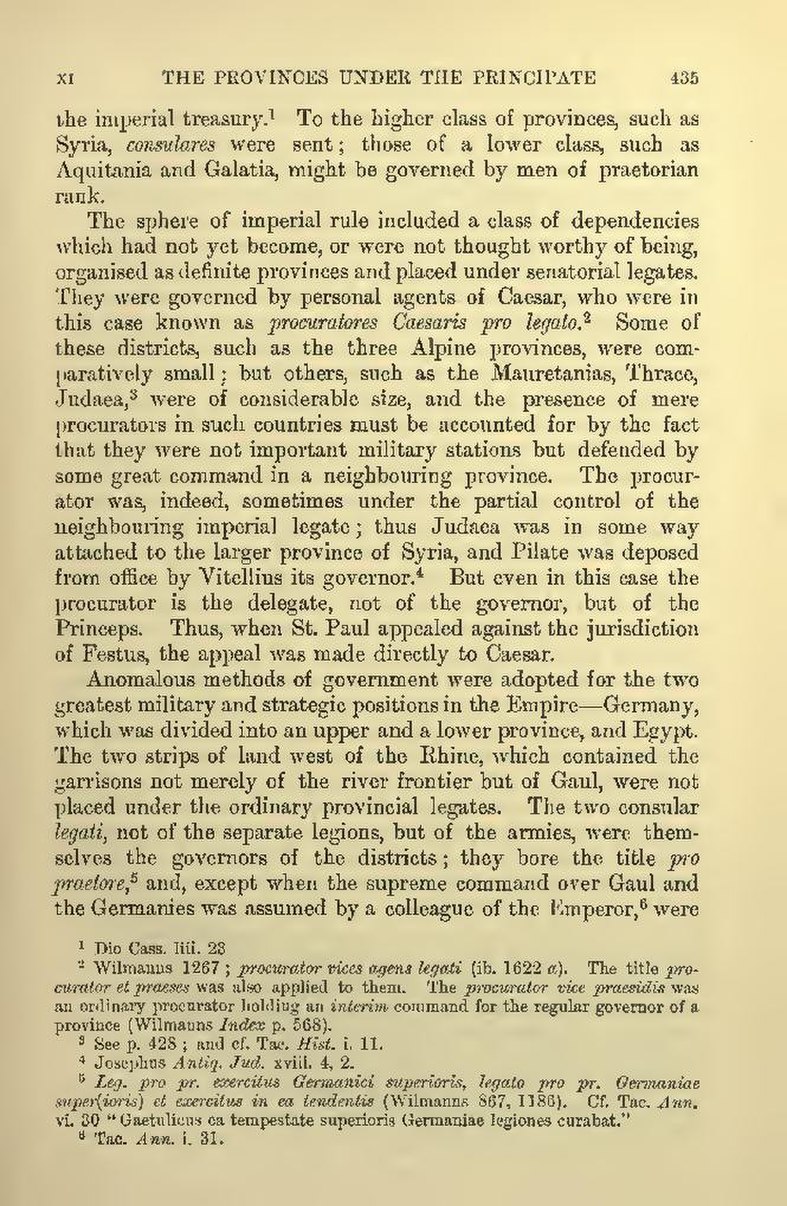the imperial treasury.[1] To the higher class of provinces, such as Syria, consulares were sent; those of a lower class, such as Aquitania and Galatia, might be governed by men of praetorian rank.
The sphere of imperial rule included a class of dependencies which had not yet become, or were not thought worthy of being, organised as definite provinces and placed under senatorial legates. They were governed by personal agents of Caesar, who were in this case known as procuratores Caesaris pro legato.[2] Some of these districts, such as the three Alpine provinces, were comparatively small: but others, such as the Mauretanias, Thrace, Judaea,[3] were of considerable size, and the presence of mere procurators in such countries must be accounted for by the fact that they were not important military stations but defended by some great command in a neighbouring province. The procurator was, indeed, sometimes under the partial control of the neighbouring imperial legate; thus Judaea was in some way attached to the larger province of Syria, and Pilate was deposed from office by Vitellius its governor.[4] But even in this case the procurator is the delegate, not of the governor, but of the Princeps. Thus, when St. Paul appealed against the jurisdiction of Festus, the appeal was made directly to Caesar.
Anomalous methods of government were adopted for the two greatest military and strategic positions in the Empire—Germany, which was divided into an upper and a lower province, and Egypt. The two strips of land west of the Rhine, which contained the garrisons not merely of the river frontier but of Gaul, were not placed under the ordinary provincial legates. The two consular legati, not of the separate legions, but of the armies, were themselves the governors of the districts; they bore the title pro praetore,[5] and, except when the supreme command over Gaul and the Germanies was assumed by a colleague of the Emperor,[6] were
- ↑ Dio Cass. liii. 23
- ↑ Wilmanns 1267; procurator vices agens legati (ib. 1622 a). The title procurator et praeses was also applied to them. The procurator vice praesidis was an ordinary procurator holding an interim command for the regular governor of a province (Wilmanns Index p. 568).
- ↑ See p. 428; and cf. Tac. Hist. i. 11.
- ↑ Josephus Antiq. Jud. xviii. 4, 2.
- ↑ Leg. pro pr. exercitus Germanici superioris, legato pro pr. Germaniae super(ioris) et exercitus in ea tendentis (Wilmanns 867, 1186), Cf. Tac. Ann. vi. 30 "Gaetulicus ea tempestate superioris Germaniae legiones curabat."
- ↑ Tac. Ann. i. 31.
